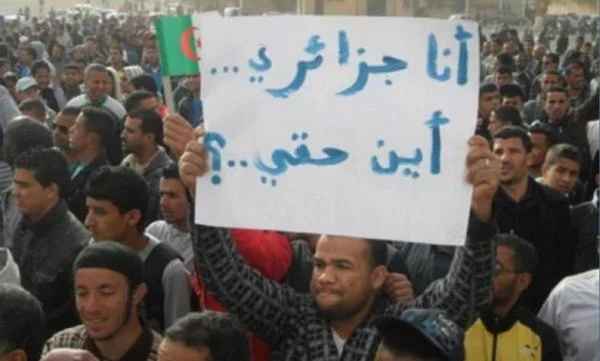Corruption and emigration are intertwined issues that reflect the economic and social challenges facing many countries, including Algeria.
Corruption, as a complex phenomenon, directly impacts development and growth opportunities, prompting young people to seek new horizons outside their country. While many seek to emigrate to escape corruption and instability, this also reflects their desire for better opportunities and a more stable future.
Corruption Deemed Necessary by Algerians
Corruption is one of the major issues facing Algeria, considered a significant barrier to sustainable development and political stability. Corruption involves the exploitation of power by “the generals” and their cronies to achieve personal interests at the expense of the public good, manifesting in various sectors.
Studies indicate that one of the main causes of corruption in Algeria is weak institutions. The country suffers from weak oversight and judicial institutions, making it difficult to hold the corrupt accountable.
There is also a prevalence of nepotism and bribery in many sectors, especially in government jobs and major projects. Additionally, a lack of transparency is noted, as governmental operations lack transparency, promoting corruption and making it difficult to uncover officials’ misconduct.
In a related context, results from a survey conducted by the independent research network “Arab Barometer” in Algeria, accessed by “Akhbarona,” showed that a significant number of respondents are willing to pay bribes to receive better services in education. Approximately 34% of citizens view paying a bribe to a civil servant for better educational services as very necessary, and 29% see it as necessary.
Regarding the “question about the possibility of paying a bribe to a government employee for better healthcare services,” about 45% of respondents view it as very necessary, and 24% see it as somewhat necessary. These results reflect the corruption entrenched in the system and the poor services provided, which lead to bribery for services, making Algerians willing to do so.
Corruption remains an ongoing challenge in Algeria that requires concerted government and societal efforts. Achieving genuine reforms requires strong political will and transparency in managing public resources, which seems absent among “the clique.”
Poor Conditions in Algeria Drive Emigration
Emigration is a significant social phenomenon facing Algeria, as many young people express their desire to leave the country in search of better opportunities.
While the reasons for emigration vary, economic reasons are among the most prominent, with the Algerian economy suffering from multiple challenges, such as high unemployment and lack of job opportunities. Many seek better employment in European or American countries.
Additionally, the deteriorating state of education in Algeria is a major motivator for emigration, as students seek advanced education in prestigious universities, enhancing their future career prospects. Educational migration has become a popular option among the youth.
This is not to mention political and social stability, as Algeria suffers from political instability, leading to a sense of insecurity for many, making emigration a means of living in more stable environments.
In this context, a poll conducted by “Arab Barometer,” involving 2,332 individuals and available to Akhbarona, revealed shocking facts about youths’ readiness to emigrate. “56% of Algerian youths aged 18 to 29 think about emigrating and leaving the country, with 35% in the 30 to 39 age group. This tendency is more common among men than women, with urban residents more inclined to emigrate compared to rural inhabitants. The desired destinations for emigration are Europe and North America, followed by the Gulf Cooperation Council countries.”
Emigration remains a complex issue in Algeria, merging the desire to seek opportunities with the challenges facing emigrants. Addressing the causes of emigration remains far from the agenda of “the generals,” in the absence of effective governmental efforts to improve the country’s economic and social conditions.
